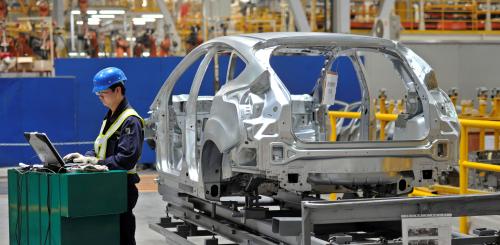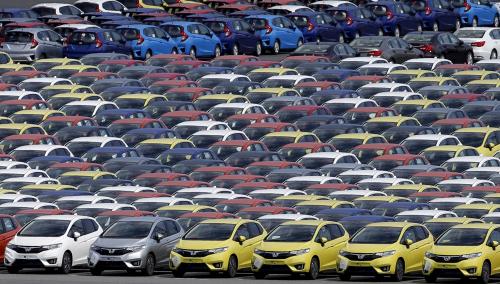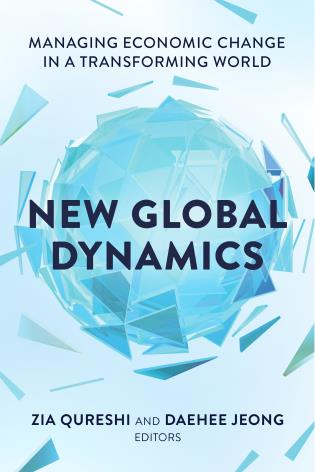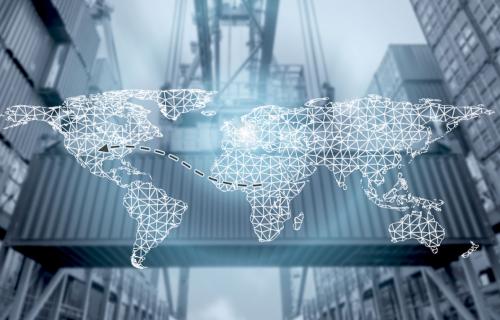

10:00 am EDT - 11:30 am EDT
Past Event
10:00 am - 11:30 am EDT
1775 Massachusetts Avenue N.W.
Washington, DC
20036
Global value chains (GVCs) break up the production process so that different steps occur in different countries. Two-thirds of world trade now takes place in value chains that cross at least one border during production. GVCs are having a profound impact on rich and poor countries alike. They also complicate trade analysis as statistics based on gross value rather than value added are often misleading. Drawing on data on the value added in trade over the past 20 years, the World Bank, World Trade Organization, and other partners have produced the first GVC Development Report.
On July 20, the John L. Thornton China Center at the Brookings Institution hosted a panel, including some of the authors of the report, to examine the research’s main findings and policy implications. What are the roles of developed and developing countries in GVCs? What are the distributional implications within countries? Why are so few developing locations involved and how can more developing countries participate? How are GVCs facilitating trade in services (with nearly half of the value added in world trade now coming from service sectors)?
Follow @BrookingsChina to join the conversation
Related Content

David Dollar
July 10, 2017

David Dollar, Satoshi Inomata, Christophe Degain, MENG Bo, Zhi Wang, Nadim Ahmad, Annalisa Primi, Hubert Escaith, Jakob Engel, Daria Taglioni, Cecilia Heuser, Aaditya Mattoo, Matthew Kidder, Michele Ruta, Jose Guilherme Reis
July 10, 2017
Moderator

Panelist




Zia Qureshi, Daehee Jeong
November 1, 2024

Robin Brooks
September 12, 2024

Witney Schneidman, Natalie Dicharry
September 5, 2024